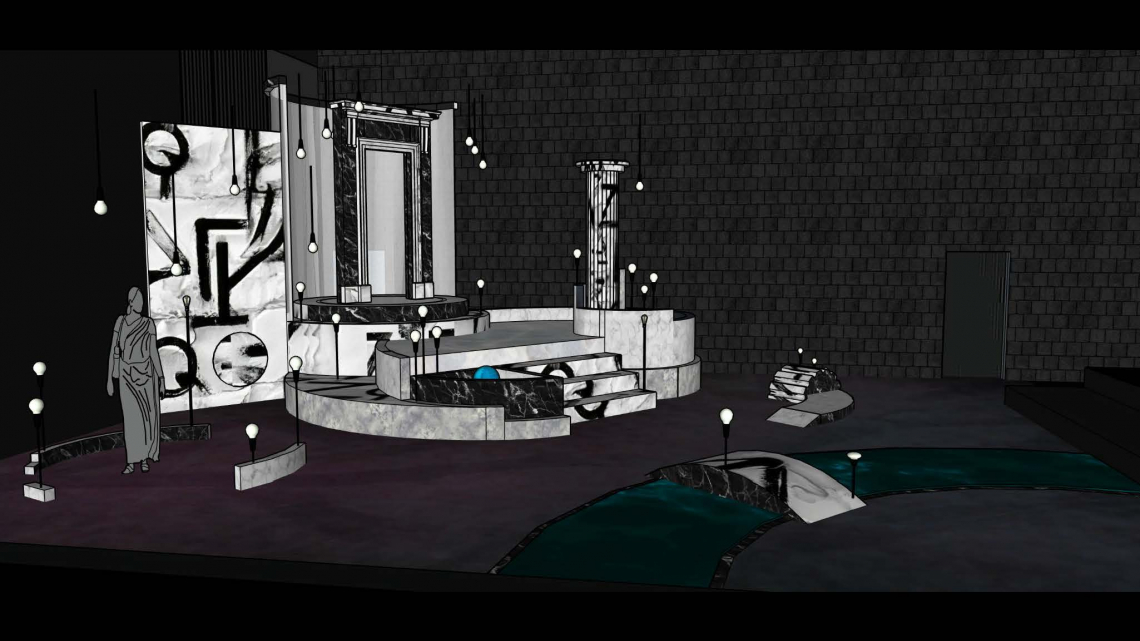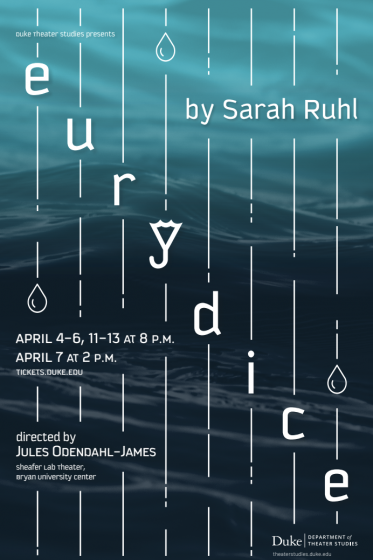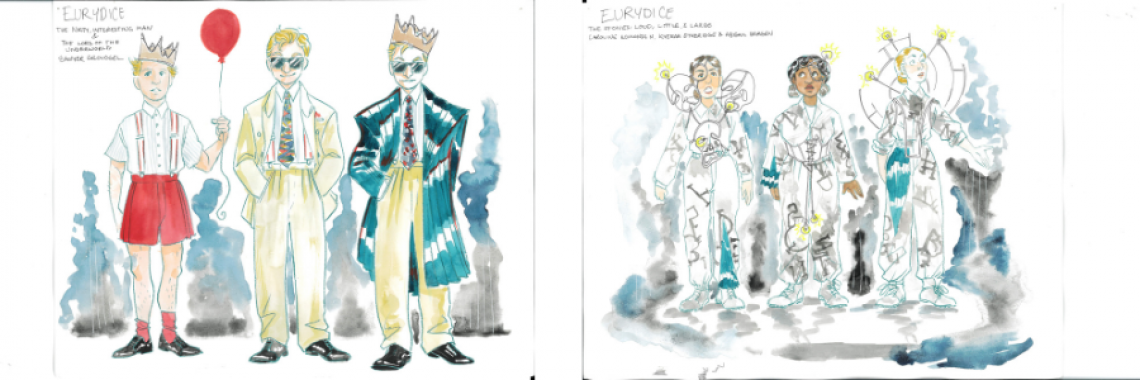
Elizabeth Thompson, Trinity Communications
Are memories — unflinching reminders of who we used to be and what we used to love — a blessing or a curse?
This is a central question in Sarah Ruhl’s Eurydice, the Department of Theater Studies’ Spring 2024 Mainstage production.

Directed by Jules Odendahl-James, Eurydice offers a modern examination of the classical Greek story of doomed lovers Orpheus and Eurydice. When Eurydice dies on her wedding day, her groom Orpheus — who possesses a god-like gift for music — attempts to lead her out of the Underworld, only to lose her forever when he looks back to check if she is following him.
“Ruhl has created a backstory for Eurydice that doesn't exist pretty much anywhere else,” Odendahl-James said. “In the classical texts, she is there to help Orpheus pursue his destiny. The focus is on the hero.”
In Ruhl’s play, however, the journey is Eurydice’s.
To prepare herself and the cast, Odendahl-James partnered with Erika Weiberg's graduate students in the Classical Studies department, inviting them to write the program notes for the production.
“Erika’s students are looking at Orpheus and Eurydice as a way to understand the influence of ideas and texts from antiquity on other forms of literature and representation, politics and culture,” Odendahl-James said. “It's been interesting to sit in on their class and see how little is given in the classical literature about these two characters.” Ruhl introduces a new character, Eurydice’s deceased father, whom she meets in the Underworld. “When you go to the Underworld, you're dipped in Lethe, the river of forgetfulness, so that you don’t long for what you can’t have anymore,” Odendahl-James said. “Eurydice’s father is there as the anchor to her memory. He finds a way to shield himself from forgetting in the hope that he’ll see her and when she shows up, they're able to reconnect. This opens a wonderful process of rediscovery for them.”
Since Eurydice’s memory was wiped clean upon entering the Underworld, her father draws on their shared love of language to teach her the things she has forgotten.
The actors have been grappling with unraveling the nuances of memory as they develop a performance vocabulary together. “How do you forget what a book is? How do you forget how to read if it’s so much a part of your daily practice?” Odendahl-James asked. “Ruhl’s characters don't know what they're engaging with, or they engage with things strangely because they’re new to them, or on the edge of a memory they can't really access in the same way they once did.

To consider these questions more deeply, Odendahl-James asked the cast to read articles about cognitive memory, Alzheimer's disease and dementia. “It seems like something a young person wouldn’t spend a lot of time thinking about,” she said, “but some of the students are interacting with family members who are affected, or they’re studying these conditions. As a director, I'm interested in pieces that grapple with loss and give us a vocabulary for it, a way to not be so scared of it.”
The setting of the play also engages the audience with their own memories. Rather than taking place in a classical milieu, Ruhl referenced the mid-20th century (specifically the 1930s-1950s) in costumes and staging when the play premiered in 2003. Odendahl-James and costume designer Hannah Haverkamp have updated this to the 1980s because, as Odendahl-James says, the point of the play is not to be pinned down in any particular era, but whatever is nostalgic to the current audience.
“The 1980s, which are nostalgic for this generation, were also very referential to the 1930s and somewhat to the 1950s,” she said. “Our production has a style that current students will definitely recognize, but also their parents will understand as a reference to when they might have been young and in love.
“I think it’s a play that students can enjoy with different generations — their peers, their parents, even their grandparents. Everyone hears this story at a slightly different point in their lives, but there are common themes of love and loss. It calls upon a shared set of experiences.”
Eurydice
Sarah Ruhl (Writer), Jules Odendahl-James (Director)
April 4 – 6 & 11 – 13 at 8 p.m.
April 7 at 2 p.m.
Sheafer Lab Theater, Bryan University Center
https://tickets.duke.edu